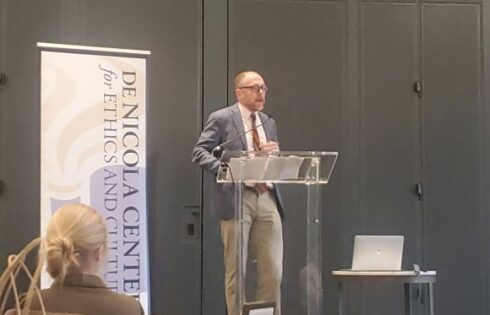
In the latest example of the alleged benefits of “inclusion” in STEM fields, UCLA’s Daily Bruin features several LGBTQ+ students who say it is necessary for institutions to “provide resources” and create “safe spaces” for them.
These students also believe their identities can assist in “challenging conventional science and views.”
For example, nonbinary alum Yasmin Rizal, a former member of the Environmentalists of Color Collective, said they (Rizal uses plural pronouns) “learned new perspectives on science” from their queer peers.
Rizal said they try to “integrate their nonbinary identity” and the “knowledge and perspectives they gained” into their current STEM career (sea turtle conservation). They added they’re “not afraid” to question science as we know it — but did not elaborate on what this means.
Chemistry grad student Helen Cumberbatch added it is “not enough” merely to recruit those from underrepresented communities into STEM fields — institutions have to keep the resources coming and create sufficient “safe spaces” for them.
Institutions also often create spaces for marginalized communities in a way that does not consider individuals’ multiple identities, [biogeochemistry doctoral student Rob] Ulrich said. For example, women in STEM groups may not be inclusive to transgender women, perpetuating inequality in STEM despite superficial efforts to be more inclusive, he added. …
Actively addressing issues such as anti-racism and anti-colonialism, in addition to forming more inclusive spaces, can help make people of all backgrounds and identities feel more welcome, Ulrich said.
Ulrich worked alongside three other students to found Queer and Trans in STEM, an organization that enables students to form connections and support networks to help solve identity-specific issues. They are also co-director of Reclaiming STEM, an organization that holds workshops to train people on culturally sensitive science communication and education policy.
The article doesn’t elucidate on the definition of “culturally sensitive science communication.” Perhaps it is akin to what Columbia University’s Kuheli Dutt once posited — that white scientists can “help increase a ‘sense of belonging’ among marginalized groups” by “separat[ing] their privilege as a White person from their identity as a good person.”
As for challenging “conventional” science, do Rizal and their peers mean something like this: teaching the fable that the Aboringines have always existed in Australia … because that’s what that continent’s natives believe? Or perhaps the mixing quantum physics with “intersectionality”? Or eschewing science as we know it altogether due to whites’ “colonization and racism”?
MORE: Duke computer science dept. offers class on race and gender
MORE: Princeton course asks: Is science ‘gendered, racialized, ableist’?
IMAGE: YouTube screencap
Like The College Fix on Facebook / Follow us on Twitter





Please join the conversation about our stories on Facebook, Twitter, Instagram, Reddit, MeWe, Rumble, Gab, Minds and Gettr.